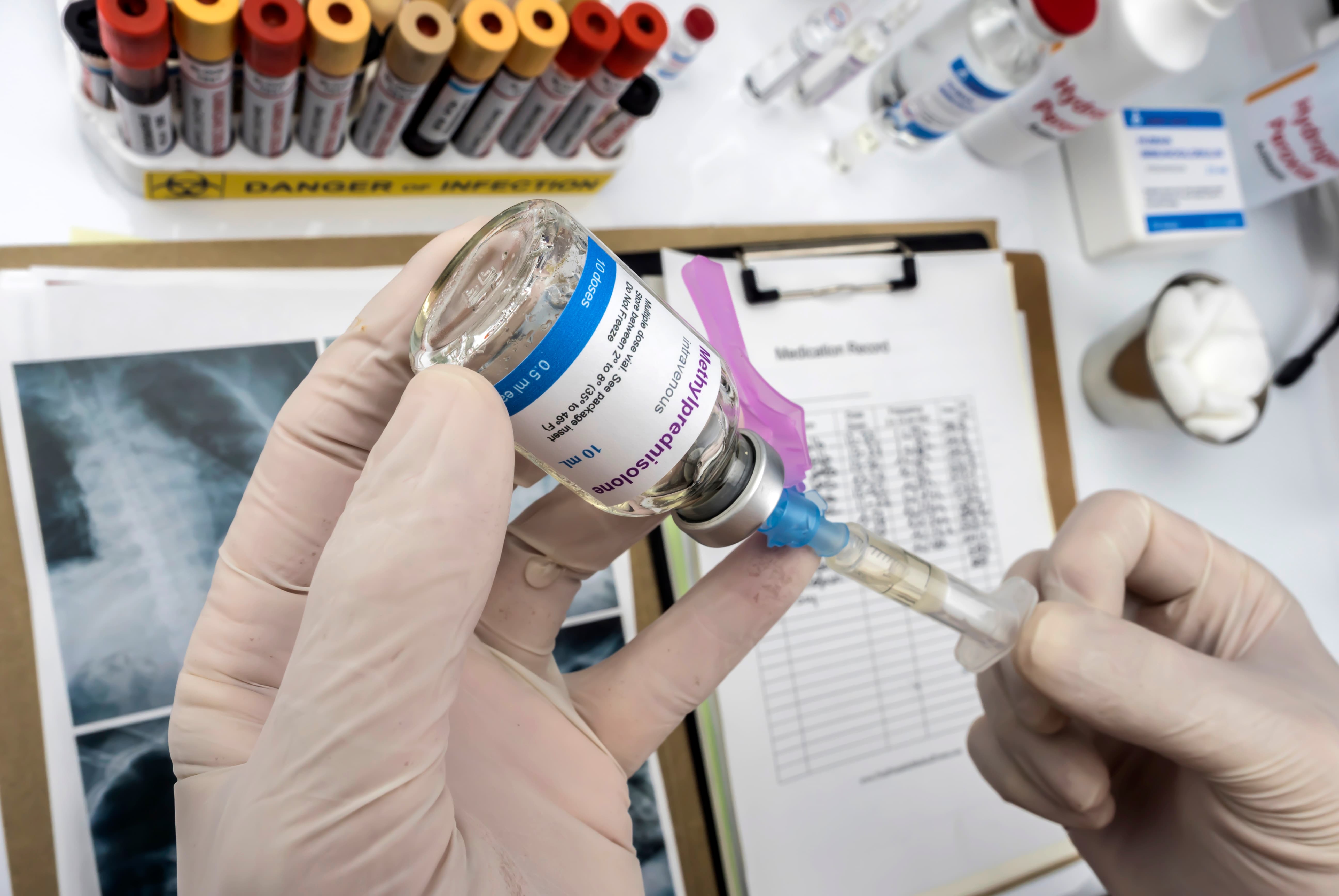Key takeaways
-
This study is one of the largest clinical trials involving pediatric surgery for congenital heart disease.
-
Overall, the use of glucocorticoids at the time of congenital cardiac surgery did not significantly change outcomes in study participants compared to the placebo group.
-
One adverse effect in the methylprednisolone group was the increased need for insulin after surgery, a known side effect.
-
Secondary findings suggesting a potential benefit of methylprednisolone administration in some infants.
-
This study confirms the need for more research evaluating the use of steroids but does not suggest a need to change practice.
Research study background
Infants undergoing surgery for congenital heart disease are at high risk for death and other complications, often directly associated with a severe systemic inflammatory response triggered by cardiopulmonary bypass. For decades, prophylactic glucocorticoids, a type of steroid, have been administered during these surgeries in an effort to combat inflammation, but their use has been controversial due to scant evidence demonstrating improved outcomes in infants.
The Heart Institute at Children’s Hospital Colorado was one of 24 U.S. congenital heart centers to participate in The Steroids to Reduce Systemic Inflammation after Infant Heart Surgery (STRESS) trial and take a deeper look into this practice. This randomized controlled clinical trial compared methylprednisolone to a placebo for infants undergoing cardiac surgery with cardiopulmonary bypass. James Jaggers, MD, and John S. Kim, MD, were the site investigators for Children’s Colorado.
“The participation of the patients enrolled at our center helped us understand the impact of daily common practice in congenital cardiac surgery across the world.”
– John S. Kim, MD
A total of 1,200 infants younger than 12 months at the time of surgery were included in the study, with 599 receiving methylprednisolone and 601 receiving a placebo. The main objective was a ranked composite of operative death, heart transplant or the occurrence of any of 13 individual major complications.
Results of the study, one of the largest clinical trials involving children undergoing surgery for heart disease, were published in the New England Journal of Medicine. The primary analysis found no significant difference in outcomes between the methylprednisolone group and placebo group when considering the composite outcomes of this population.
A secondary analysis of individual outcomes, unadjusted for risk factors, suggested a small benefit of methylprednisolone in some infants. The odds of needing an additional operation for bleeding were lower in the methylprednisolone group (1.2% compared to 3.5%), and there was somewhat greater evidence of benefit in patients who underwent less complicated operations, patients with longer duration of cardiopulmonary bypass and premature patients.
A noteworthy limitation of the study was that about 25% of participants received postoperative glucocorticoids, more commonly occurring in the placebo group, which may have restricted the benefit of the intervention.
Relevance to future research
Study authors indicated the need for additional research into total complications and outcomes based off the secondary review of all outcome components. This includes determining if a more targeted approach to methylprednisolone administration, such as decreasing the dosage, might be more beneficial in select subpopulations, and evaluating the role of postoperative glucocorticoids.
Additional resources
Featured researchers

James Jaggers, MD
Co-Medical Director, Heart Institute
Children's Hospital Colorado
Barton-Elliman Chair in Pediatric Cardiothoracic Surgery, Surgery-Cardiothoracic
University of Colorado School of Medicine

John S. Kim, MD
Cardiologist and Intensivist, Cardiac ICU and Heart Institute
Children’s Hospital Colorado
Associate Professor, Pediatrics-Cardiology
University of Colorado School of Medicine





 720-777-0123
720-777-0123










